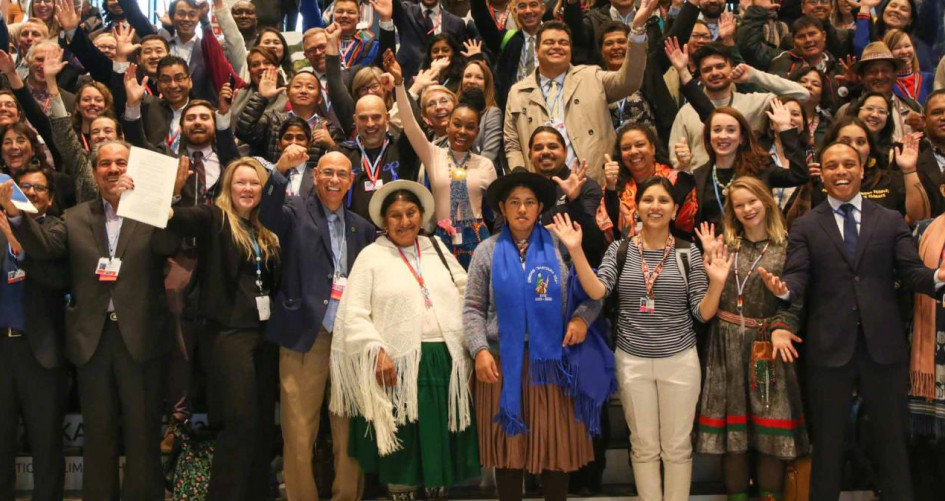UN Climate Change News, 3 June 2021 – The crucial role of indigenous peoples and local communities in achieving the Paris Agreement goals and building a climate-resilient world was highlighted during an event today of the Local Communities and Indigenous Peoples’ Platform (LCIPP) at the May-June UN Climate Change Conference.
The Platform is designed to enable indigenous peoples and local communities at the front lines of climate change to share their unique perspectives on reducing emissions and adapting and building resilience to climate change, thereby giving them an active role in shaping climate action as part of the UNFCCC process.
In opening remarks at the event, UN Climate Change Executive Secretary Patricia Espinosa underlined the critical importance of the LCIPP community’s work in the lead up to the UN Climate Change Conference COP26 in Glasgow in November:
“For COP26 to be declared a success, the momentous progress of the LCIPP and the historic alliance between indigenous peoples, local communities and Parties must be upheld and strengthened.”
The UN Climate Chief spoke of the urgent need to reorient how we interact with nature if we are to tackle the climate crisis, and acknowledged the role of indigenous peoples and local communities in doing so:
“To rectify our relationship with nature, and meet the Paris climate goals, we need to come together and harness the power of diverse knowledge systems.”
Today’s event follows the recent launch of the LCIPP web portal, which gives indigenous peoples and local communities all over the world a new and direct way to share their knowledge and facilitates their engagement in climate action with Parties and other stakeholders.
The LCIPP web portal marks the first time indigenous knowledge holders have worked with Parties to design an online space. The web portal brings together indigenous peoples and local knowledge systems, events and dedicated information on indigenous peoples and local communities under the scope of the UNFCCC. The portal incorporates new ways for contributors to get directly involved and participate in the work of the platform, and enhance knowledge sharing among and from indigenous peoples and local communities working to address climate change.
“The LCIPP Portal launch is a significant step forward in our commitment to provide a space for indigenous peoples and local communities to share information, work, recommendations and good practices for addressing climate change,” said Andrea Carmen, Co-Chair of the Facilitative Working Group (FWG) which is the constituted body supporting the LCIPP. “Exchanging experiences about climate change is essential to protecting indigenous knowledge and ways of life,” she added.
To ensure that the sharing of experiences, information and good practices on the web portal is grounded on the Free, Prior and Informed Concept (FPIC) framework, the FWG has published guidance information on Rights Safeguards and Protocols. This guidance ensures that the process of sharing information on the portal upholds best practices. Clement Yow Mulalap, Co-Chair of the FWG, observed, “This web portal provides a model for other bodies in and outside the Convention as they seek to interact and build respectful relationships with indigenous peoples and local communities.”
Web portal sub-committee member and Executive Director of the Indigenous Friends Association, Alejandro Mayoral Banos, explained: “The LCIPP web portal is one step further to facilitate exchange between local communities, indigenous peoples and Parties about the land and the environment”.
He further stated: “The design process of this portal allows people from different worldviews and communities to contribute their expertise in a framework that responds to realities that local and indigenous communities are facing worldwide. This portal is an inclusive space to come together in a direct system without intermediaries and help build a climate-resilient world for all people.”
Ways to engage
Indigenous peoples, local communities, Parties and other relevant contributors to the LCIPP are invited to share your experiences and engage with the work of the LCIPP through the portal’s user-friendly ways to engage. Visit here to explore how you can help raise the voices of indigenous peoples and local communities and address climate change in a holistic way.
For more information, please visit the LCIPP web portal or contact the LCIPP Team at lcipp@unfccc.int.
